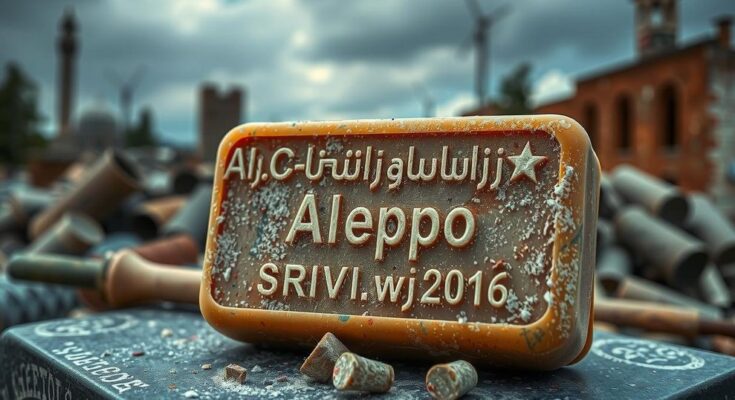UNESCO has added Aleppo soap to its intangible cultural heritage list, recognizing the ancient craft amidst ongoing conflict in Syria. The soap’s production, which has occurred for thousands of years, exemplifies traditional knowledge and community unity, despite the decline in local factories due to war. This designation aims to preserve Aleppo’s cultural identity and support the families reliant on this artisanal trade.
The United Nations Educational, Scientific and Cultural Organization (UNESCO) has officially recognized Aleppo soap as part of its intangible cultural heritage, a move announced amidst ongoing conflict in Syria’s second city. This time-honored tradition of soap making, rooted in 3,000 years of artisanal practice, involves the careful blending of olive and laurel oil, a process that includes large-scale boiling, cooling, and hand-cutting into blocks. Despite the turbulent circumstances following the recent capture of Aleppo by Islamist-led forces, this acknowledgment aims to preserve the cultural significance of the soap and its production methods.
Aleppo soap now joins the ranks of the city’s traditional music, Al Qudoud Al Halabiya, which was previously recognized. The city itself, a UNESCO World Heritage Site since 1986, has faced increasing threats, resulting in its designation on the endangered list in 2013 due to the civil unrest. UNESCO noted the craft relies on traditional knowledge and local ingredients, requiring a drying period that can extend to nine months.
Though only a fraction of the original soap factories remain operational—approximately 10 out of 100—this craftsmanship plays a crucial role in sustaining familial and community empowerment in Aleppo. UNESCO remarked that “the collaborative production process promotes community and family unity,” underscoring the soap’s importance beyond mere commerce, embodying cultural resilience amid adversity.
The ancient city of Aleppo has long been a center of trade and culture in Syria, renowned for its artisanal crafts, particularly the unique soap produced from natural ingredients. Aleppo soap, made from olive oil and laurel, is known for its purity and moisturizing properties, boasting a history that spans millennia. UNESCO’s recognition of this craft is intended not only to honor its historical significance but also to support thousands of families involved in its production as the region struggles amid ongoing conflicts.
In conclusion, the UNESCO designation of Aleppo soap as an intangible cultural heritage serves as a vital recognition of Syria’s rich artisanal traditions amidst the backdrop of war. The continued production of this soap represents not only a craft but also a form of cultural identity and community resilience for the people of Aleppo. As the city endures ongoing strife, such recognitions are critical in ensuring that its cultural heritage remains intact and valued.
Original Source: jordantimes.com




